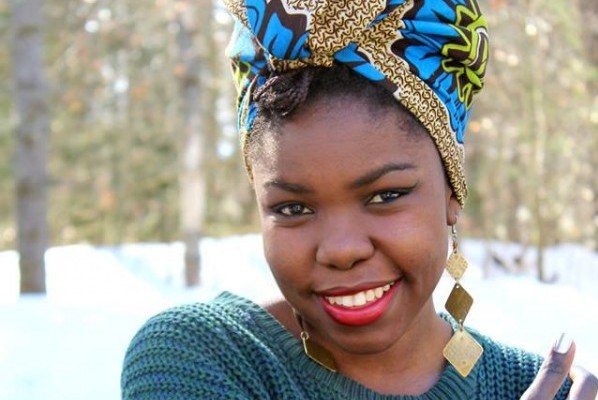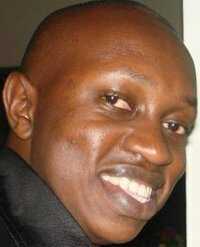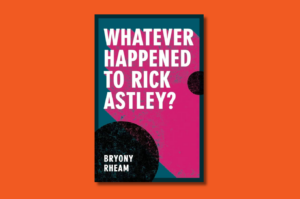Still keeping our promise to bring you reviews of all five stories shortlisted for the Caine Prize. Last week, we featured Richard Ali’s review of Diane Awerbuck’s “Phosphorescence” and the week before Aaron Bady’s review of Billy Kahora’s story.
This week, it’s the Kenyan writer, Orem Ochiel, reviewing Okwiri Oduor’s “My Father’s Head.” Oduor’s story was originally featured in Feast, Famine and Potluck (Short Story Day Africa, South Africa 2013)
Read story HERE.
Let us know what you think of the story and Ochiel’s take on it.

“My Father’s Head” might be about the death of a father. Aaron Bady suggests that African women writers have a penchant for strategic dismembering of family/society by killing patriarchs: Mariame Bâ’s So long a letter, Tsitsi Dangarembga’s Nervous Conditions, Taiye Selasi’s, Ghana Must Go, Yvonne Adhiambo Owuor’s Dust—all these novels begin with the death of the protagonist’s male relative. Bady adds that such a death not only liberates these female characters but constitutes their fictional worlds.
Oduor’s narrator, Simbi, attempts to reconstruct her dead father. The only image she has of him is painfully partial. The solid form masked by his visible face remains imperceptible by her. Ajany, in Yvonne Owuor’s Dust, turns to painting to recreate her brother; Simbi turns to drawing.
In my mind I could see his face, see the lines around his mouth, the tiny blobs of light in his irises, the crease at the part where his ear joined his temple. […] I could see all these things, yet no matter what I did, his head refused to appear within the borders of the paper.
The father is headless until when his daughter can recall and remake him whole. This, after all, is the work of psychoanalysis: not a recollection of the past but a rewriting and redrawing of it.
The figure of the missing father and his ghostly return mirrors the exclusionary practices of man-dominated language. Such language is always marked by the possibility of a terrible return of that which is rejected, that is, woman.
This cutting off of patriarchal figures in African women’s narratives might be seen as necessary violence for the creation of spaces in which women can rebuild their worlds beyond the spectre of male domination. This envisioning of the world without man is an overturning of current psychic conditions: entering into a world defined by man, the author redefines her symbolic world, and redefines man himself by herself.
Oduor’s narrator declares:
And yet it was not my father I was mourning. I was mourning the image of myself inside the impossible aura of my father’s death.
Okwiri Oduor’s narrative bravely makes demands of the reader that—I cautiously wager—no previous Caine Prize story has dared. First, she abandons plot. There are moments when she makes a tentative gesture towards plot, but it only to emphasize its absence, as is evident in one of the opening moments in the story.
It all started the Thursday that Father Ignatius came from Immaculate Conception in Kitgum.
However, Father Ignatius has no stake in the story other than as a reminder of Him, that is, God, whose face, the Bible says, no woman or man can see, and live. After the opening third of the novel, Father Ignatius never appears again except briefly, to exorcise Simbi’s house for a fee. All that remains: Simbi, immaculately conceiving of a Father.
A series of scenic elaborations follow: “the water pipe has burst and we are filling our glasses with shit”, “Kadima’s wife sits on the dough and charms it with her buttocks”, “feet […] smelt slightly fetid, like sour cream”, “eyes burst and rolled in rain puddles”, and so on—interspersed with “African” cultural code, such as, “It is only with a light basket that someone can escape the rain,” and “Only the food you have already eaten belongs to you.”
Abruptly, in the last third of the story, a monologue and a change of register: “Let me tell you: one day you will renounce your exile, and you will go back home […]”
Who speaks this speech? Who is addressed? Who is invoked and implicated in “you”? The impassioned speaker continues:
You think that your people belong to you, that they will always have a place for you in their minds and their hearts. You think that your people will always look forward to your return.
The story, such as it is, then resumes.The speech, an interrupting declamation, presents the surrounding narrative as an extensive aside to a primary schism.
We might imagine Oduor at her desk, writing into the night, perhaps recalling Toni Morrison’s The Bluest Eye in which Freida’s father’s naked body causes her and her sister to “feel shame brought on by the absence of shame,” when, after their father “had moved on, the dark took only him away, not his nakedness. That stayed in the room with us. Friendly-like.” For Oduor’s protagonist, Simbi,
[N]o matter what I did, his head refused to appear within the borders of the paper. I started off with his feet and worked my way up […]
Oduor’s story recalls the phantasmatic men in the life of Liz, the protagonist in Bessie Head’s A Question of Power. These men whom Liz both encounters and imagines are simultaneously fathers, paramours, companions, and tormentors. Simbi’s father seems to be(come) her lover:
[T]he vendor said to me, “Is it true what the vegetable-sellers are saying, that you finally found a man to love you but will not let him through your door?”
That evening, I invited my father inside.
Oduor, writing against alienation, creating a “Here”, which Keguro Macharia insists “is an important term in women’s cultural production,” and of which the speaker of the mysterious monologue says, “And you, you will have to tell them stories about places not-here.”
Oduor, haunted, writing, then, perhaps in a moment of distress, carving that monologue into the page, and destroying the dissimulation of story; her narrative being the uncertain ground on which other fantastic philosophical and poetic struggles are underway.
Read “My Father’s Head” HERE.
Come back next Tuesday for Kola Tubosun’s review of Tendai Huchu’s story, “Intervention.” Read it HERE.
 Orem is a lapsed mathematician and perspiring writer from Kenya. He muses at @nochiel, scribbles inconstantly at Life as Fiction, maintains an inbox at nochiel[at]gmail[dot]com, and writes with the Jalada Africa writers’ collective.
Orem is a lapsed mathematician and perspiring writer from Kenya. He muses at @nochiel, scribbles inconstantly at Life as Fiction, maintains an inbox at nochiel[at]gmail[dot]com, and writes with the Jalada Africa writers’ collective.









Okwiri Oduor wins Caine Prize for African Literature | Africa 39 July 22, 2014 22:51
[…] Ochiel, writing for popular African literary site, Brittle Paper, described Oduor’s method of utilising narrative as “narrative being the uncertain […]